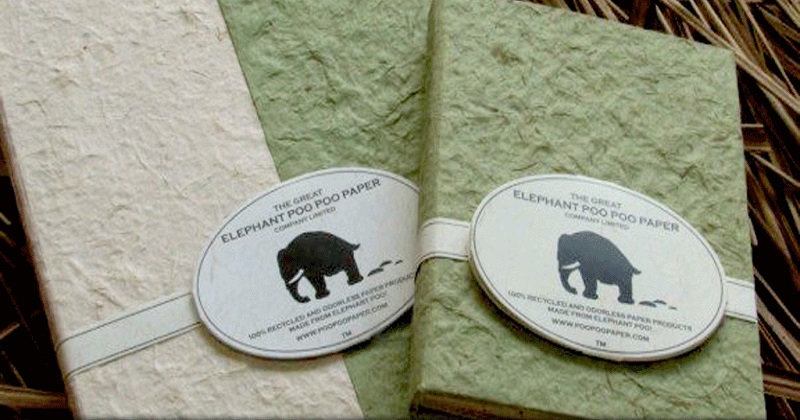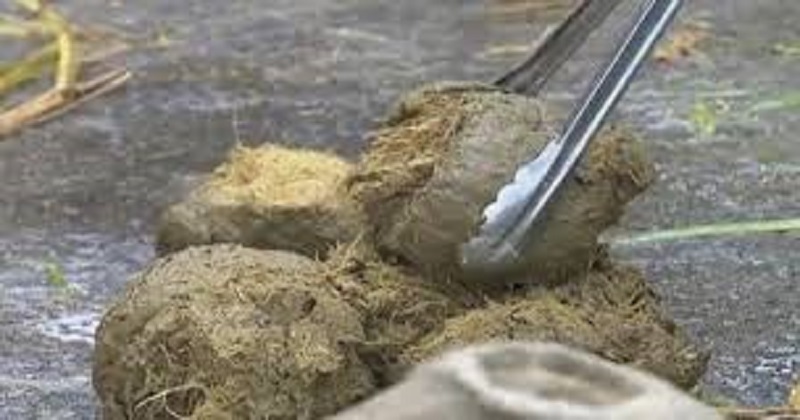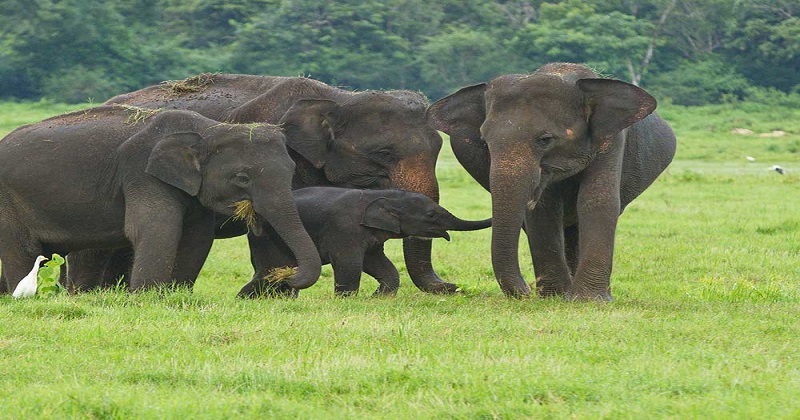
Elephant dung is ideal for making paper. Indonesia’s Taman Safari Park, demonstrates this by upcycling a daily total of 2.5 tons of Sumatran Elephant dung every day to make compost and all sorts of gift shop goods.

Zookeepers first wash and boil the dung, which sterilizes it, removes microbes, and separates the undigested hay from the dung. The mixture is then blended into a pulp with other paper waste, much like traditional paper. The workers then spread the mixture into sheets and allow for it to dry.The paper is then used for books, posters and photo frames that are printed with safari-themed print and sold in the gift shop. The safari park also hopes that by recycling this poo, the products made will bring attention to how important these animals are and help to safeguard them against poaching.While most of its products are made from different types of indigenous tree species, 20% now come from elephant dung.


Making the paper started as a pilot project in 1994, before commercialisation began a decade later when local farmers such as Mr Matano set up their own paper-making businesses.The farmers had for generations had to put up with elephants from the nearby government-owned Shimba Hills National Reserve walking into their farmlands and eating or destroying crops. This resulted in serious and sometimes deadly conflicts between humans and elephants.
https://www.facebook.com/500689923461310/posts/1438798226317137/?sfnsn=wiwspwa&extid=1hXZMMWElB4mqKPy
source ; PN Facebook
So the Mwaluganje Elephant Sanctuary was established neat to the national reserve, with financial assistance and support from the United States Agency for International Development, and UK animal charity Born Free Foundation.The idea was that the surrounding farmers would receive a share of the tourism revenues from the sanctuary to make up for any crops that are destroyed by elephants.
The price and quality is similar to standard paper, but with the added benefit of reducing deforestation.And with 600 elephants regularly passing through, the raw material is not in short supply.The elephant dung paper industry has so far helped more than 500 local people pull themselves out of poverty.

Post Your Comments